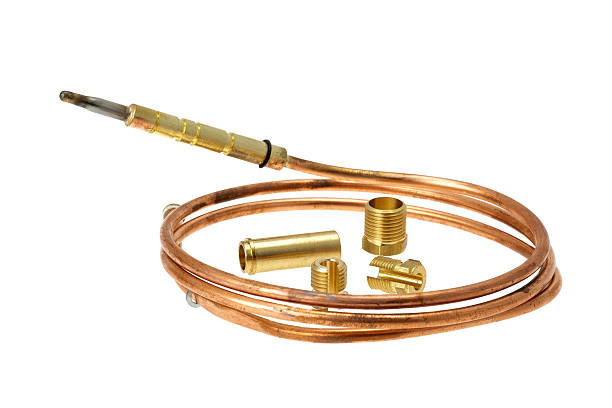
What is a Thermocouple? -And what is it used for?
I. Introduction to Sensors and Thermocouples Automation and reliability are at the heart of modern technology, and sensors play a crucial role in achieving both. Sensors are devices that measure physical inputs such as heat, motion, and light and translate them into data for machines or humans. A thermocouple is one of the most essential types of temperature sensors, especially in industrial applications where precision and durability are critical.
II. Origin and Importance of Temperature Sensing The ability to detect hot or cold conditions has always been essential for human survival and productivity. In industrial processes, temperature fluctuations can significantly impact product quality, operational efficiency, and safety. Early temperature sensors like bimetallic strips responded to heat by bending, which was useful for basic control tasks. Today, more sophisticated sensors like thermocouples provide fast, accurate, and reliable temperature readings across extreme conditions.
III. How Thermocouples Work A thermocouple operates on the Seebeck effect. When two dissimilar metals are joined and exposed to different temperatures at each junction, they generate a small voltage proportional to the temperature difference. One end the measuring junction is exposed to the target temperature, while the other the reference junction is maintained at a known temperature. The resulting voltage is measured and interpreted as temperature.
IV. Key Features and Technical Evaluation
-
Temperature Range: -200 to +2000 °C, making thermocouples suitable for high-temperature environments.
-
Accuracy: Generally good; not as precise as RTDs but effective over wider ranges.
-
Response Time: Fast, especially in grounded or exposed junction styles.
-
Durability: High; ideal for prolonged industrial use.
-
Power Consumption: Low, especially compared to RTDs.
-
Application: Cement kilns, power generators, industrial ovens, and cryogenic freezers.
V. Types of Thermocouples Thermocouples are categorized by metal composition and calibration type:
-
Type K (Nickel-Chromium / Nickel-Alumel): Common, inexpensive, and reliable. Range: -270 to 1260 °C.
-
Type J (Iron / Constantan): Lower temperature range; shorter lifespan at high heat. Range: -210 to 760 °C.
-
Type T (Copper / Constantan): Very stable for low temperatures. Range: -270 to 370 °C.
-
Type E (Nickel / Constantan): Strong signal and high accuracy. Range: -270 to 870 °C.
-
Type N (Nicrosil / Nisil): High stability, alternative to Type K. Range: -454 to 392 °C.
Noble Metal Types:
-
Type S (Platinum Rhodium / Platinum): Biotech and pharma applications. Range: -50 to 1480 °C.
-
Type R (Platinum Rhodium / 13% Platinum): Similar to Type S but more expensive.
-
Type B (Platinum Rhodium / 6-30%): Extremely high-temperature stability. Range: 0 to 1700 °C.
VI. Mounting and Junction Types
-
Grounded Junction: Fast response time; vulnerable to electrical interference.
-
Ungrounded Junction: Electrically isolated; reduces ground loop issues.
-
Exposed Junction: Direct contact with process; fast but less durable.
VII. Connecting to Control Systems Thermocouples can connect directly to temperature input modules or through transmitters that convert the signal to 4-20 mA. While direct connection simplifies wiring, transmitters help reduce signal noise in industrial environments. Many systems also include a 1 MΩ resistor to detect sensor breaks or resistance changes.
VIII. Smart Thermocouples and Industry 4.0 With the rise of Industry 4.0, smart wireless thermocouples have emerged. These sensors offer long-range data transmission and battery-powered operation, ideal for remote monitoring in food storage or boiler systems. Using wireless K-type thermocouples, data can be sent up to two miles, helping industries improve temperature control and operational efficiency.
IX. Conclusion Thermocouples remain a cornerstone of industrial temperature sensing thanks to their durability, range, and versatility. By understanding their working principles, classifications, and applications, users can select the ideal thermocouple for their specific industrial needs and enhance the reliability of their automation systems.
Contact PLG Automation
Email: sales@plgautomation.com
Phone: 800-906-9271
